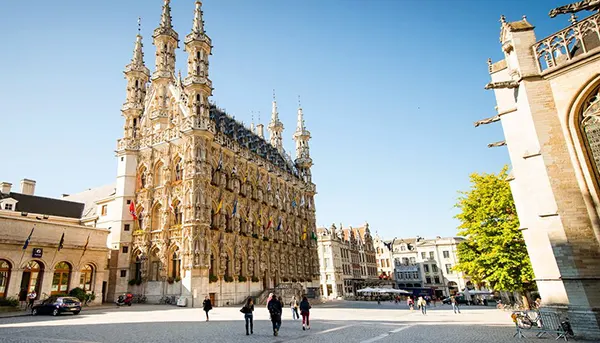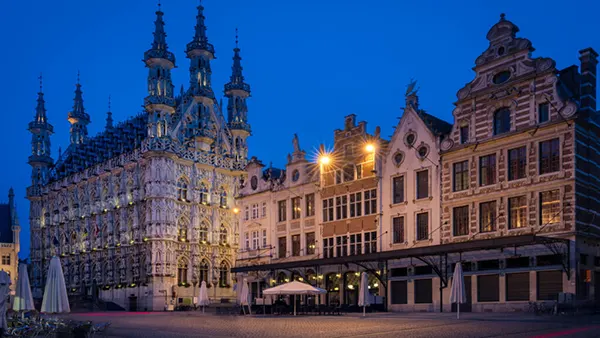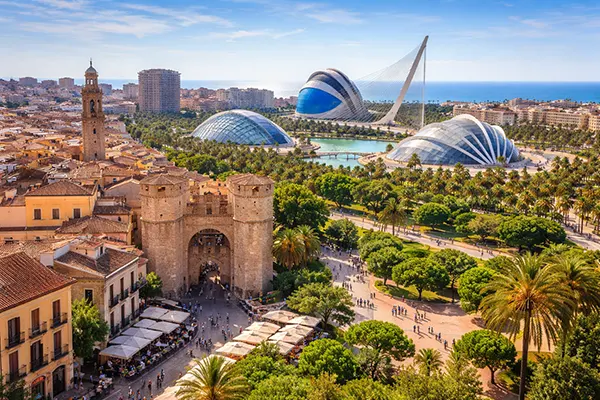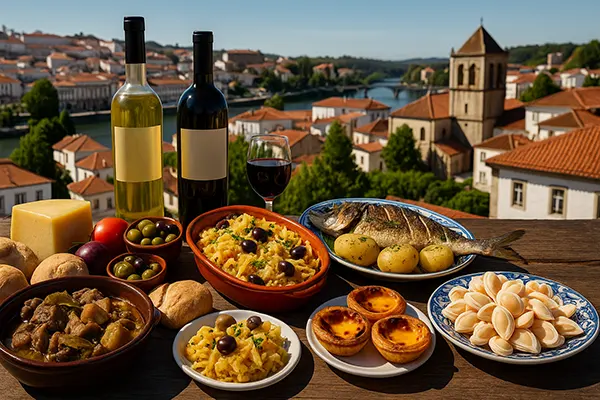
Leuven – A Student City with the Gothic Heart of Belgium
Located just 25 kilometres east of Brussels, Leuven is a vibrant Belgian city that seamlessly blends a rich medieval past with youthful energy. Known for its prestigious university, architectural marvels, and innovative spirit, Leuven attracts students, historians, and travellers alike. By February 2025, the city continues to evolve as a dynamic academic and cultural hub while preserving its unmistakable Gothic charm.
The Historic Core of Leuven
Leuven’s city centre is a living showcase of Gothic architecture, most notably embodied in its spectacular Town Hall. Constructed in the 15th century, this masterpiece features over 230 intricately carved statues and an ornate façade that continues to captivate tourists and scholars. Just opposite stands the impressive St. Peter’s Church, home to one of the most significant collections of religious art in Belgium, including works by Dirk Bouts.
The Grote Markt, or Main Square, serves as the heart of Leuven’s social and cultural life. Surrounded by historic buildings, quaint cafes, and bookshops, this square offers a glimpse into daily life while celebrating centuries of tradition. The meticulous preservation of these Gothic landmarks not only reflects the city’s past but also enhances its role as an educational and cultural destination.
As of early 2025, Leuven maintains active heritage restoration projects supported by local and European funds. These efforts aim to sustain the city’s historical aesthetics while integrating them into a modern urban framework. The balance between past and present is what makes Leuven architecturally unique among European cities.
Hidden Gems Beyond the Main Square
While the city centre draws the most attention, Leuven’s hidden alleys and neighbourhoods offer equally captivating stories. The Beguinage, a UNESCO World Heritage site, is a tranquil residential quarter built for religious women in the 13th century. Today, it is part of the university and provides peaceful housing for professors and students alike.
The nearby Molenbeek Park and Dijle River trails present scenic routes perfect for quiet walks or bike rides. These green spaces are not only recreational areas but also form part of the city’s eco-conscious urban planning initiatives. In 2025, Leuven continues to rank among Belgium’s greenest cities due to its sustainability policies.
Leuven’s hidden charm lies in its capacity to surprise. Whether it’s stumbling upon a centuries-old library or a mural from a student art project, the city constantly reveals its layers. Each corner holds a story that contributes to the identity of this ever-evolving metropolis.
A Thriving Student Community
Leuven is synonymous with student life thanks to KU Leuven, one of Europe’s oldest and most reputable universities. Founded in 1425, the university is home to over 60,000 students, half of whom are international. This diversity fosters a lively atmosphere and brings global perspectives to local conversations.
Academic events, cultural festivals, and student-led initiatives take place year-round, making the city pulse with energy. The annual 24 Uur Loop (24-Hour Run) and International Student Week are particularly notable, drawing crowds from across Europe. As of 2025, KU Leuven remains a top 50 global university, reinforcing Leuven’s place on the academic map.
The integration between students and the city is seamless. Housing, transport, and services are student-friendly, and the municipality actively collaborates with the university on urban development. This synergy has turned Leuven into a blueprint for student-centred urban design.
Student Culture Beyond the Lecture Hall
Beyond academics, Leuven’s student culture thrives through music, nightlife, and social activism. Dozens of student clubs cater to diverse interests, from entrepreneurship to literature. Pangaea, a multicultural hub, offers language cafés and global cuisine nights that build community among international residents.
The Old Market, often dubbed the “longest bar in the world,” is the social nucleus of the student population. This strip of pubs, all nestled in historic buildings, becomes the centre of nightlife every weekend. Despite its reputation for festivity, the area remains well-regulated and safe, even by 2025 standards.
Students in Leuven also actively participate in sustainability campaigns, social causes, and local governance. Their presence doesn’t just influence the cultural climate—it shapes city policy, fosters innovation, and brings a contagious sense of purpose and inclusion.

Innovation, Technology and Sustainability
While Leuven cherishes its historical heritage, it is equally forward-looking. The city plays a leading role in scientific innovation through research parks, tech incubators, and its proximity to Brussels. The Health House, a futuristic science centre, offers immersive experiences in medical innovation and is a key attraction in 2025.
Leuven was named the European Capital of Innovation in 2020 and continues to lead initiatives in smart city technologies. From AI-powered traffic management to energy-efficient housing, the city integrates research with real-world application. Collaboration between KU Leuven and local startups remains at the heart of this transformation.
By February 2025, the city boasts an expanded green transport network, including self-driving electric buses on selected university routes. These efforts not only reduce emissions but also act as living labs for academic and commercial research projects.
A Model for Future Urban Living
Leuven’s model of combining heritage, education, and technology has gained international recognition. The city hosts dozens of conferences annually on urban planning and sustainable development. Policy-makers from across Europe visit Leuven to study its successful municipal frameworks and participatory governance models.
Citizens and students alike have access to platforms where they can contribute ideas to local projects. One such initiative, Leuven 2030, aims to achieve carbon neutrality with collective input. By 2025, the programme has already led to measurable reductions in emissions and energy waste across the city.
Leuven shows that small cities can be global leaders in innovation and inclusion. Its success lies in its human-centric approach—combining academic excellence, historical preservation, and forward-thinking urban design in a way that benefits every resident and visitor.





